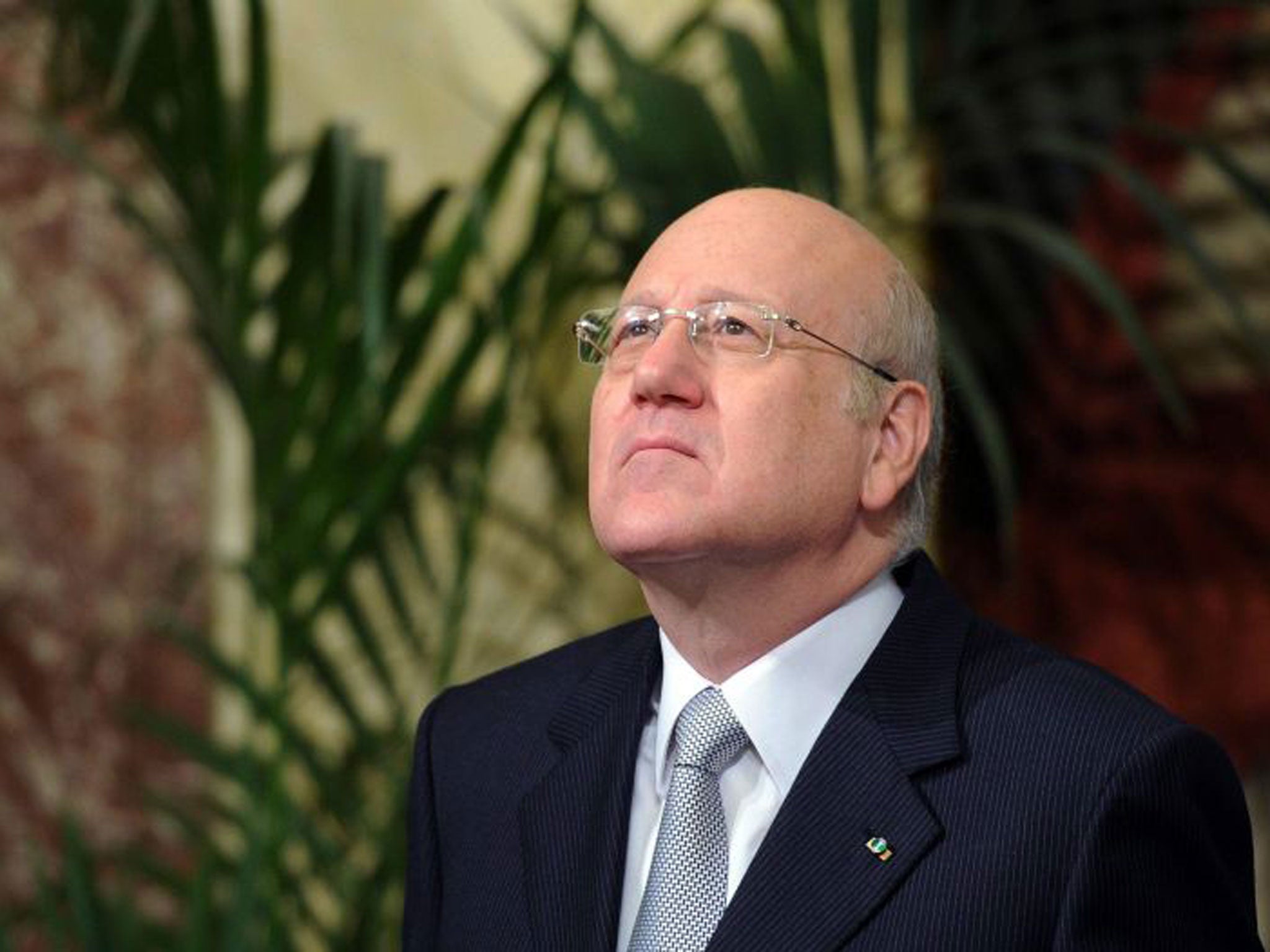Lebanon PM resigns after cabinet deadlock on security services

Your support helps us to tell the story
From reproductive rights to climate change to Big Tech, The Independent is on the ground when the story is developing. Whether it's investigating the financials of Elon Musk's pro-Trump PAC or producing our latest documentary, 'The A Word', which shines a light on the American women fighting for reproductive rights, we know how important it is to parse out the facts from the messaging.
At such a critical moment in US history, we need reporters on the ground. Your donation allows us to keep sending journalists to speak to both sides of the story.
The Independent is trusted by Americans across the entire political spectrum. And unlike many other quality news outlets, we choose not to lock Americans out of our reporting and analysis with paywalls. We believe quality journalism should be available to everyone, paid for by those who can afford it.
Your support makes all the difference.Lebanon’s fragile peace was thrown into peril last night as the Prime Minister resigned amid sectarian political infighting over the country’s electoral law and appointments in its security service.
The announcement by Najib Mikati comes as the civil war in neighbouring Syria exacerbates divisions in its smaller neighbour, where politics are deeply polarised by the conflict. As he called for a national dialogue to save the country from “regional fires” and “internal divisions”, clashes had already broken out in the country’s northern city of Tripoli.
Mr Mikati, a Sunni muslim, had been pushing for cabinet to extend the mandate of the head of the country’s Internal Security Forces Maj Gen Ashraf Rifi, who is due to take compulsory retirement next month due to his age. The issue put him at odds with his cabinet, which is dominated by Shia Hezbollah lawmakers.
Legislation surrounding the country’s forthcoming elections, scheduled in June, has also become contentious and polls are expected to be delayed. The backdrop to Mr Mikati’s resignation is one of sharply escalating tension. The past week has posed the greatest threat to the country’s stability since the 2006 war with Israel, according to the country’s army chief. Syrian warplanes have bombed Lebanese territory while Sunni clerics have been attacked on the streets. Adding to strife is a burgeoning refugee population and public sector strikes.
Last night, a tenuous ceasefire in Mr Mikati’s home city of Tripoli was shattered by rocket-propelled grenades and gunfire. Fighting between Alawite and Sunni neighbourhoods in the city has broken out sporadically since the beginning of the Syrian war and has claimed six lives this week.
Join our commenting forum
Join thought-provoking conversations, follow other Independent readers and see their replies
Comments